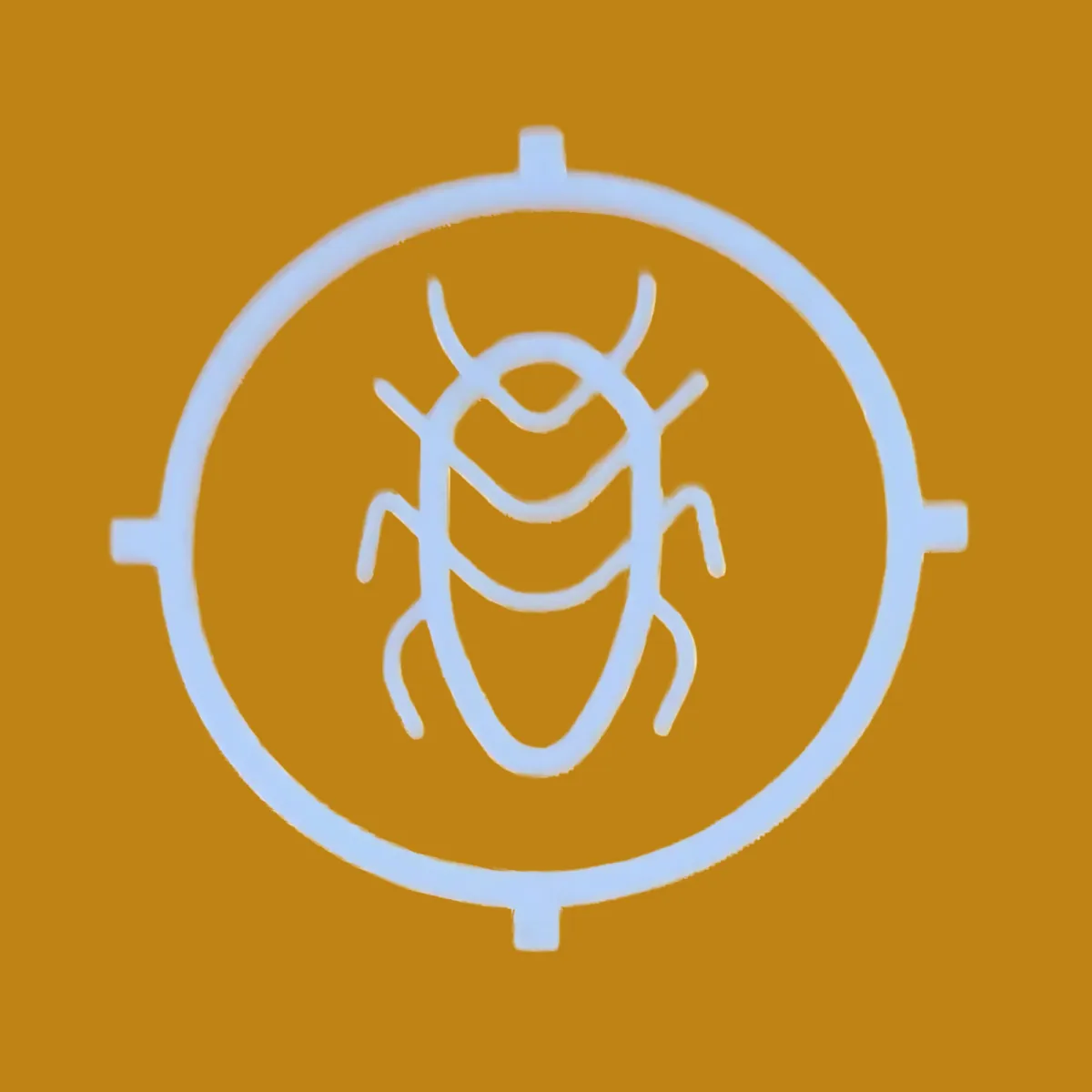
The Ottawa Pest Control Journal
Educational insights into how to keep your Ottawa home or business pest free

Fall Rodent Prevention: Securing Your Home Against Unwanted Guests
Understanding the Threat
Rodents like mice and rats are not just nuisances; they pose various health risks and can cause significant property damage as they chew through wires, insulation, and walls. Their search for warmth can lead them straight into the nooks and crannies of your living space.
Preventive Measures to Take Now
Seal Entry Points: The first line of defense is to deny access. Inspect your home for any cracks, holes, or openings larger than a quarter-inch. Common areas include where utility pipes enter, gaps around windows and doors, and where the foundation meets the home structure. Use caulk, steel wool, or a combination of materials that rodents cannot easily gnaw through.
Trim Vegetation: Keep tree branches and shrubbery well-trimmed and away from the house. Overgrown vegetation can provide rodents with the perfect bridge to your living quarters.
Manage Waste Properly: Rodents are drawn to food waste. Ensure that all garbage bins are securely sealed and stored away from entry points into your home.
Inside Your Home: Fortify Your Fortress
Keep It Clean: Minimize food sources available to rodents by keeping your kitchen and dining areas clean. Store food in rodent-proof containers and avoid leaving pet food out overnight.
Reduce Clutter: Cluttered storage areas make attractive nesting sites for rodents. Regularly organize and clean basements, attics, and closets.
Set Traps: In areas where you suspect rodent activity, consider setting traps. Various options are available, from traditional snap traps to more humane catch-and-release systems, depending on your preference.
Technology and Innovation in Rodent Control
Advancements in pest control technology have introduced more sophisticated methods to manage rodent populations:
Ultrasonic Repellents: Devices that emit high-frequency noises can deter rodents, although their effectiveness can vary.
Smart Traps: These traps send alerts to your smartphone when a rodent is captured, allowing for immediate action.
Integrated Pest Management (IPM) Solutions: IPM focuses on sustainable prevention techniques and biological control methods, reducing the reliance on chemical treatments.
Health Risks Associated with Rodents: Why Timely Pest Control is Crucial
Understanding these risks is vital for recognizing the importance of proactive rodent control.
Hantavirus Pulmonary Syndrome: This potentially fatal respiratory disease can be transmitted through inhaling dust contaminated with rodent urine or droppings, or less commonly, through direct contact with these materials. Early symptoms mimic the flu but can rapidly progress to severe breathing difficulties and, in some cases, death.
Leptospirosis: This bacterial disease is spread through rodent urine, which can contaminate water or soil. Humans can contract leptospirosis through contact with infected water, especially through cuts or abrasions on the skin. Symptoms range from mild headaches and muscle pains to more severe reactions like kidney damage, liver failure, meningitis, or respiratory distress.
Salmonellosis: Rodents can also spread salmonella bacteria through their feces. Ingestion of contaminated food or water can lead to salmonellosis, presenting symptoms such as diarrhea, fever, and abdominal cramps.
Rat-Bite Fever: This disease can be transmitted through bites or scratches from infected rodents, or by handling a rodent carrying the bacteria, followed by touching one's mouth or eyes. Symptoms include fever, vomiting, headache, and in severe cases, rash or inflammation of the heart.
Allergies and Asthma: Rodent droppings, dander, and shed hairs can also cause or exacerbate allergies and asthma. Particles can become airborne and when inhaled, can lead to respiratory issues, coughing, and nasal congestion.
DIY Prevention Tips: Simple Strategies to Keep Rodents at Bay
Here are some practical and easy-to-implement tips that homeowners can use to deter rodents:
Proper Food Storage: Store food in airtight containers made of glass, metal, or heavy-duty plastic. Ensure that grains, pet food, and other dry goods are securely stored, and avoid leaving food out overnight.
Declutter and Clean: Rodents look for nesting materials and hiding spots. Regularly declutter your home, especially storage areas like garages, basements, and attics. Keep these areas clean and organized to reduce the appeal to rodents.
Natural Repellents: Use natural deterrents to keep rodents away. Peppermint oil, clove oil, and cayenne pepper are known to repel mice and rats. Soak cotton balls in these oils or create sprays, and place them near suspected entry points.
DIY Traps: You can make simple traps using household items. A popular option is the bucket trap: place a baited can suspended over a bucket filled with water, creating a ramp to the can. Rodents will fall into the bucket while trying to reach the bait.
Ultrasonic Repellers: Consider using ultrasonic repellers, which emit a high-frequency sound that is uncomfortable for rodents but inaudible to humans and non-rodent pets. These devices can be an effective deterrent when placed in key areas around the home.
Routine Inspections: Regularly inspect your home for signs of rodent activity. Look for droppings, signs of chewing, and greasy marks along baseboards and walls. Addressing signs of rodents early can prevent a full-blown infestation.
Seasonal Preparation Checklist: Year-Round Rodent Defense
Here's a seasonal checklist to help homeowners fortify their residences against these persistent pests:
Spring:
Inspect and Clean: Perform a detailed inspection of your home for any signs of winter damage that rodents could exploit. Clean out gutters and check for leaks that might attract rodents seeking water.
Garden Maintenance: Clean up debris from your yard and garden to eliminate potential nesting sites. Trim back vegetation from the exterior of your house to reduce shelter and access points.
Seal Openings: Check for and seal any cracks or holes in the foundation and exterior walls using caulk or steel wool, especially where pipes and cables enter your home.
Summer:
Food Storage: Ensure all food items, including pet food and bird seed, are stored in rodent-proof containers. Keep kitchen areas clean and free of crumbs.
Indoor Clutter: Minimize clutter in your home, especially in less frequently used areas like basements and attics, to reduce hiding spots for rodents.
Water Source Management: Fix any dripping taps or leaking pipes to eliminate moisture sources that attract rodents.
Fall:
Comprehensive Home Inspection: Before the weather cools, do a thorough walk-through of your home to identify any new entry points or potential weaknesses in the structure.
Weatherproofing: Install door sweeps and repair damaged screens in windows and vents to block entry points before rodents seek shelter from the cold.
Prepare for Heating: Check and clean chimneys and furnace areas where rodents might hide or nest as these areas become more attractive when it's cold outside.
Winter:
Monitor Indoor Activity: Keep an eye on indoor spaces during the colder months, as this is when rodents are most likely to seek the warmth of a house.
Storage Areas: Organize and clean storage areas, using plastic bins instead of cardboard to store items, which can deter nesting.
Regular Cleaning: Maintain cleanliness and order in attics, garages, and basements to discourage rodents from settling in for the winter.
Staying Vigilant
Regular inspections are key to early detection of rodent activity. As the season changes, maintaining vigilance and updating your prevention strategies are crucial. Consider scheduling a professional inspection to identify potential risks and address them promptly.
Wayne's Commitment to Your Peace of Mind
At Wayne's Pest Extermination, your peace of mind is our top priority. Our expert team is equipped with the knowledge and tools to help you prepare your home for every season. Remember, the best defense against pests is a good offense—start securing your home today!
For more detailed strategies or to schedule a consultation, visit our website or contact us directly. Together, let’s ensure your fall season is enjoyable and rodent-free!
[https://www.waynespestextermination.com/home]

Schedule a Pest Inspection
Ready to schedule a pest inspection? Contact us today.
